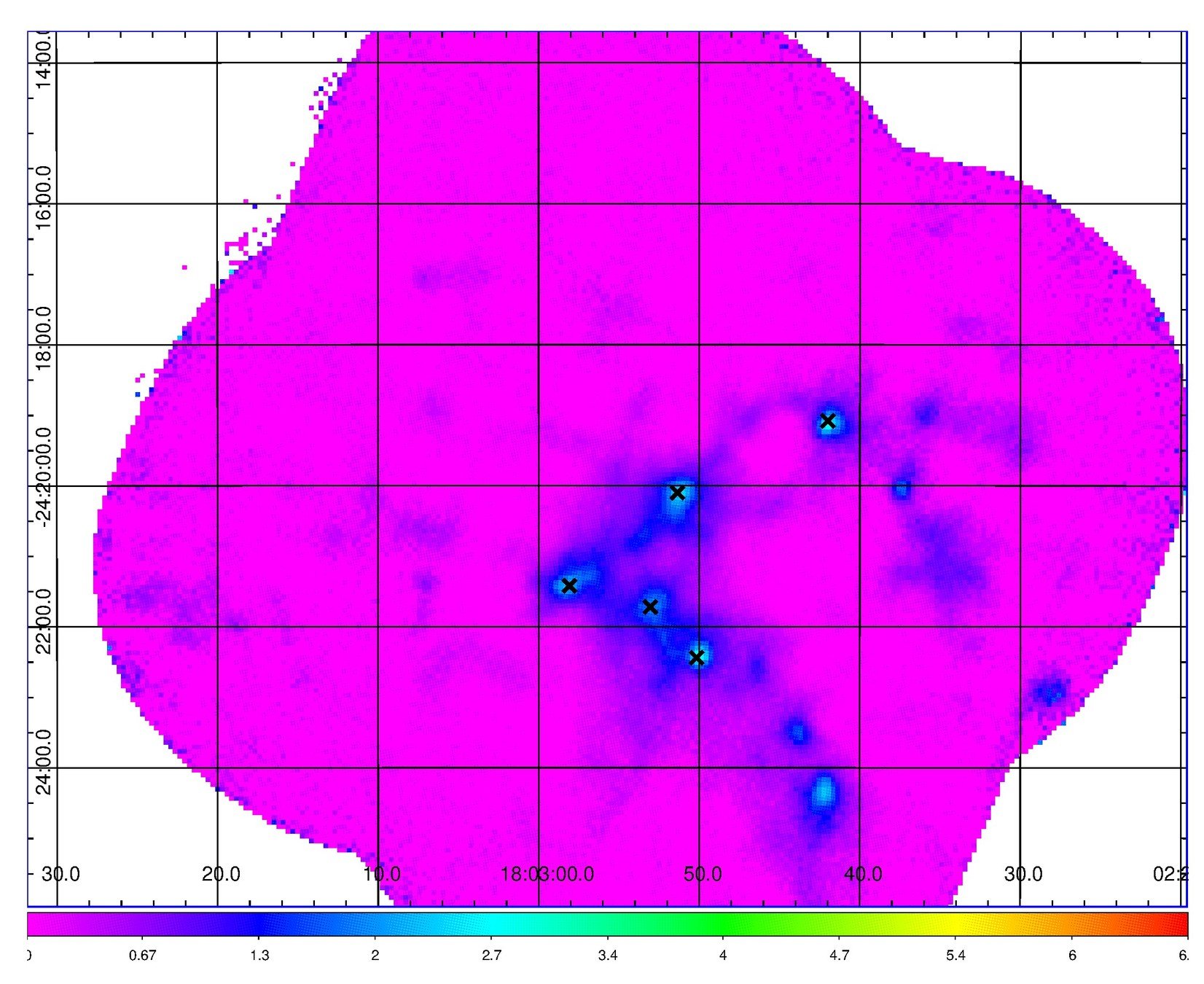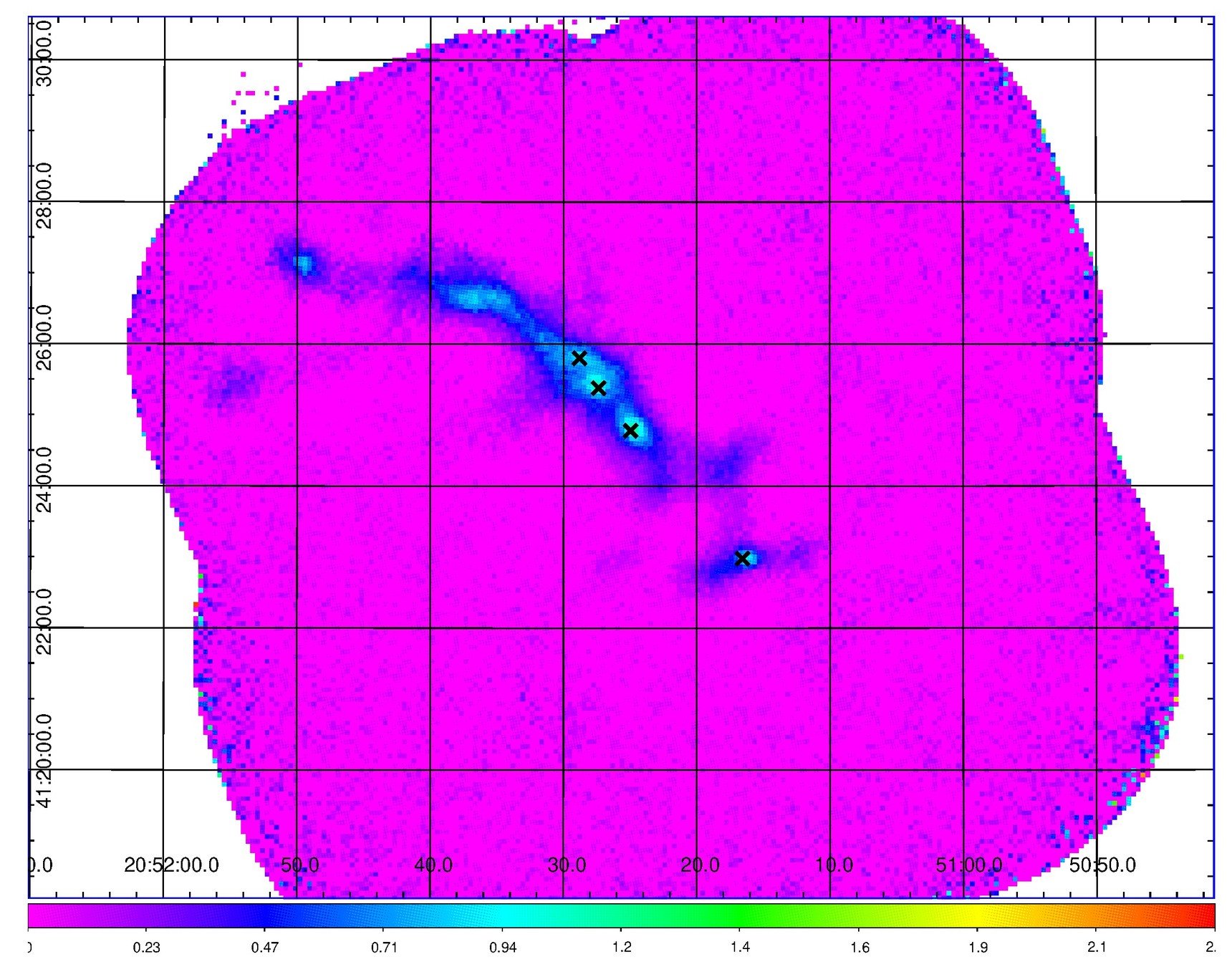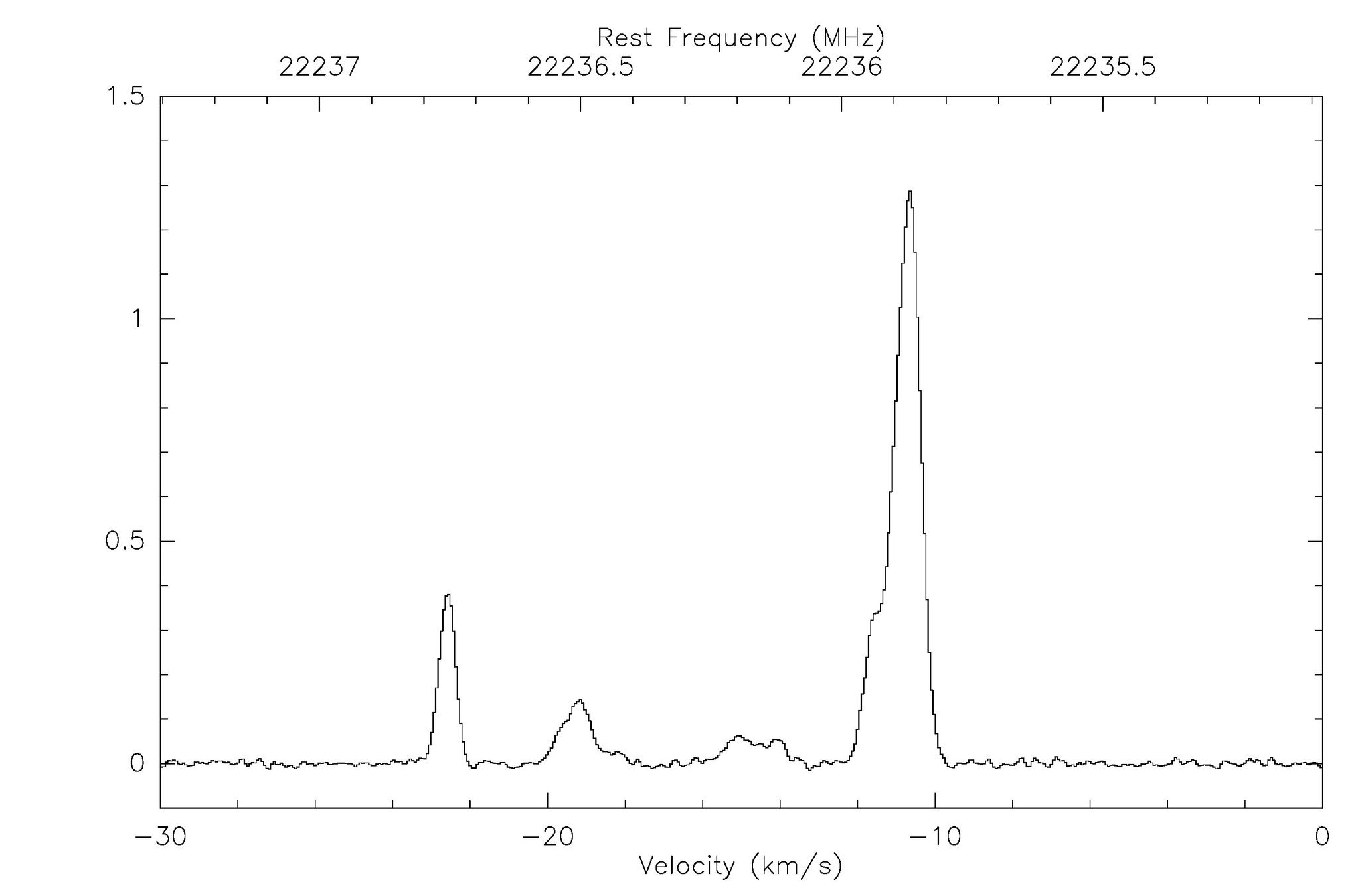NH3 follow-up observations of PGCCs - a diverse sample of 100 dense cores
presenting: Orsolya Fehér
collaborators: Tie Liu + TOP-SCOPE, L. Viktor Tóth, Rebeka Bőgner, Victor Toth, Naomi Hirano, Mika Juvela, Julien Montillaud, Isabelle Ristorcelli, Kenichi Tatematsu, Derek Ward-Thompson, Sarolta Zahorecz
GCC workshop, 2018. 06.04-07. Besancon
A joint proposal with the NRO, JCMT and SMA
- TOP-SCOPE: SCUBA-2 (JCMT) and TRAO observations of > 2000 PGCCs
- ~ 4000 dense cores (starless, protostellar)
- follow-ups: NRO 45m, KVN 21m, JCMT, PMO: line surveys, chemical evolutionary states + ALMA follow-up, Arecibo, FAST
N2H+, CCS, HC3N, DNC, HN13C, N2D+, cyclic C3H2...
- 100 PGCCs in different environments: 36 high-latitude isolated or in clusters, 40 in filaments, 14 massive, clustered and 10 starless
- NRO, SMA, JCMT: chemical state, accretion, physical condition, density profile, fragmentation, dust properties...
- Effelsberg 100m: NH3(1,1), (2,2) and (3,3): gas temperatures, NH3 abundances, velocity dispersions
observations
- 2018 February 15-18, 63 hours requested, 69 hours given
- ~ 10-15 minutes on-target, single pointing + some maps
- 23.62 - 23.92 GHz, delta f = 4.5 kHz (0.06 km/s), position switching
- NH3 emission towards all sources, 1 source no (2,2), 1 source weak (1,1) and (2,2), 6 sources with (3,3) detection
- 22.1 - 22.4 GHz: H2O maser
- DONE:
- calibrated for atmospheric absorption, elevation
- converted TA to TMB brightness temperature
- single pointing (1,1) and (2,2) lines Gaussian and hyperfine fitting
- calculated: excitation, rotation, kinetic temperatures, NH3 column densities, H2 volume densities
observations
G89.65-7.02A_01
G105.57+10.39_01
G105.57+10.39_02
G107.17+5.44_01
G107.17+5.44_03
G107.25+5.72_01
G109.79+2.71_01
G139.60-3.06_01
G215.8-17.5A1_01
G202.02+2.85_01
G202.02+2.85_02
G202.02+2.85_04
G195.74-2.30_01
G195.74-2.30_02
G178.2-00.6A1_02
G178.2-00.6A2_02
G172.8+02.2A1_01
G172.8+02.2A1_02
G172.8+02.2A1_03
G173.15+02.38_01
G173.15+02.38_02
G173.15+02.38_04
G159.2-20.1A1_01
G159.2-20.1A1_02
G159.2-20.1A1_03
G074.1+00.1A1_01
G074.1+00.1A1_02
G70.10-1.69D_01
G82.39-1.84_01
G82.39-1.84_02
G82.39-1.84_03
G82.39-1.84_04
G82.65-2.00A_01
G82.65-2.00A_02
G006.0+36.7A_01
G001.3+20.9A1_01
G001.3+20.9A1_02
G35.49-0.31_03
G35.49-0.31_05
G35.49-0.31_08
G33.72-0.02_03
G37.91+2.18A_01
G39.73+1.91_01
G017.21-01.46_01
G017.21-01.46_02
G005.91-01.00_01
G005.91-01.00_02
G005.91-01.00_03
G005.91-01.00_04
G005.91-01.00_05
G23.35-0.26_01
G23.35-0.26_04
G24.04+0.26_02
G24.04+0.26_03
G16.36-0.62_01
G16.36-0.62_03
G16.36-0.62_04
G16.36-0.62_09
G16.96+0.27_01
G16.96+0.27_02
G16.96+0.27_03
G16.96+0.27_04
G16.96+0.27_05
G16.96+0.27_06
G035.37-01.76_01
G035.37-01.76_02
G035.37-01.76_06
G86.97-4.06_01
G89.66-6.61_01
G093.5-04.3A1_01
G093.5-04.3A1_03
G91.87+4.18_01
G91.87+4.18_02
G92.03+3.92_01
G92.04+3.93_01
G14.15-0.55_01
G14.15-0.55_02
G14.71-0.19_02
G14.71-0.19_03
G14.71-0.19_04
G14.71-0.19_06
G14.21-0.19_04
G14.21-0.19_07
G14.21-0.19_09
G17.37+2.26_01
G17.37+2.26_02
G17.37+2.26_03
G17.37+2.26_04
G34.73-1.39_02
G69.57-1.74B_01
G69.57-1.74B_02
G23.68+0.57_01
G23.68+0.57_05
G057.1+03.6A1_01
G057.1+03.6A1_02
G10.20-2.40_01
G26.53-0.71_01
G162.4-08.7A2_01
G162.4-08.7A2_02
G171.4-14.9A1_01
RESULTS: STatistics

[K]
[K]
[K]
Number of sources
Number of sources
Number of sources
RESULTS: STatistics

[cm-2]]
[cm-2]
sources around 1016 and 1017 cm-2 as well
sources around 1.5 x 105 and 3.5 x 106 cm-2 as well
Number of sources
Number of sources
RESULTS: STatistics
Kinetic temperature [K]
H2 volume density [cm-3]

average 12% relative error in Tkin
average 30% relative error in n(H2)
RESULTS: highs and lows
- highest kinetic temperatures
G017.21-01.46: 25 and 26 K and high NH3 column densities



RESULTS: highs and lows
- highest kinetic temperatures
G005.91-01.00: 20 - 50 K (high errors), very weak (2,2) and (1,1)
must be re-observed



RESULTS: highs and lows
- lowest kinetic temperatures
G82.39-1.84: coldest filamentary structure (8.8 - 10 K)



RESULTS: highs and lows
- lowest kinetic temperatures
G006.0+36.7A1: coldest isolated target (7.8 K) and very high n(H2)


RESULTS: LIne components
- kinematics:
G35.49-0.31: overlapping cloud cores in the line of sight




RESULTS: OTHER LINES
- (3,3) line
G173.15+02.38: detected for all 3 sources on this field


RESULTS: other lines
- H2O maser
on the same field G173.15+02.38



FUture work
- analysis of line profiles
- analysis of maps
- comparison of gas parameters
- gas parameters vs continuum parameters
- chemistry, abundance?
- evaluation of water maser detections
- publication of results
Thank you for the attention!